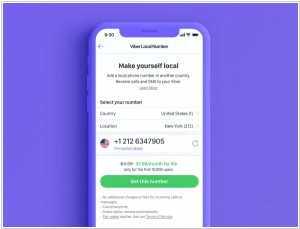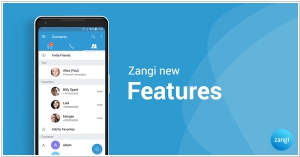Local Phone Number providers
Updated: July 31, 2023
Local phone number providers are companies that offer phone numbers with area codes specific to a particular geographic location. These providers cater to businesses and individuals seeking to establish a local presence in different regions without physically being present. Local phone number services are often offered as virtual or cloud-based solutions, enabling users to manage their phone numbers and communication settings online. With local phone numbers, businesses can reach customers in specific areas more effectively, fostering trust and familiarity with the local community. Many local phone number providers offer additional features like call forwarding, voicemail, and text messaging, allowing businesses to handle calls and messages professionally and efficiently. Whether for marketing campaigns, customer support, or business expansion, local phone number providers offer a valuable solution to enhance communication and establish a local presence in various regions.
See also: Top 10 VoIP services
See also: Top 10 VoIP services
2019. Viber users can now get local numbers

Viber has introduced a new feature as part of its ongoing efforts to enhance user engagement and generate additional revenue. Users now have the opportunity to subscribe to "local numbers" that can receive phone calls and SMS messages, as if these communications are directed to mobile numbers in specific regions. Known as Viber Local Number, this service is accessible to global users, with initial availability limited to the U.S., U.K., and Canada, and plans to expand to more countries in the near future. At launch, all area codes within the U.S. will be covered. Similar to Skype's longstanding offering, Viber now provides the option to obtain a local number in a particular region for both making and receiving calls.
2013. Zangi wants to defeat Skype

Today Skype turns 10 years. Already 10 years Skype is the most popular service for VoIP / video calls. But one day the One will come and defeat Zangi. Maybe it will be Google Hangouts, or Viber, or Tango, or ooVoo, or Nimbuzz. And maybe - the new startup - Zangi, that will launch globally in October. What is the brilliant idea of Zangi? They want to create really unified communications tool that can connect two people, no matter where they are, what device they use and what connection they have. Unlike Skype, that works only via Internet, Zangi allows to connect via GSM (using call-back). In addition, it allows to send SMS and support calls via browser (web interface). Unlike Viber, Zangi allows you to make video calls. ***
2010. Skype to create new products for business

Today Skype has filed an IPO registration statement and plans to raise up to $100 million in an initial public offering. Along with the IPO application Skype has published some of the their business stats and plan of its further development. It turnes out that the company is doing quite well. During the first 6 months in 2010 Skype has earned $406 million, that is approximately 25% higher the previous year. Nevertheless, taking into account that the Skype has already more than 560 million registered users (it's more than Facebook), the company's management wants to earn at least ten times more. In addition, they are worried that almost 90% of Skipe's income comes from a single service - SkypeOut. Therefore, the major objective of attracting new investments is the development of new paid of business applications. ***
2007. RingCentral allows to manage your calls, save money with VoIP
RingCentral, the phone call management service, is introducing a range of VoIP plans known as DigitalLine, providing users with the flexibility to utilize VoIP alongside or in place of their existing landlines. The implementation of the new VoIP system is straightforward and user-friendly. Users have the option to configure incoming calls to be received through VoIP, enabling them to manage and receive phone calls even when they are away from their landline. Additionally, various minute packages are available for making outgoing calls using VoIP, including an unlimited plan for outgoing VoIP calls at an approximate cost of $25 per month. Unlike consumer-oriented VoIP services such as Vonage, Skype, or Comcast's DigitalVoice, RingCentral is primarily targeting the multi-line business community that seeks to efficiently handle multiple lines without the need for additional hardware or staff. This solution is particularly beneficial for small business owners as it offers extensive customization options for handling incoming calls, including the ability to establish advanced rules or dynamically redirect calls using the SoftPhone, a virtual phone call manager.

